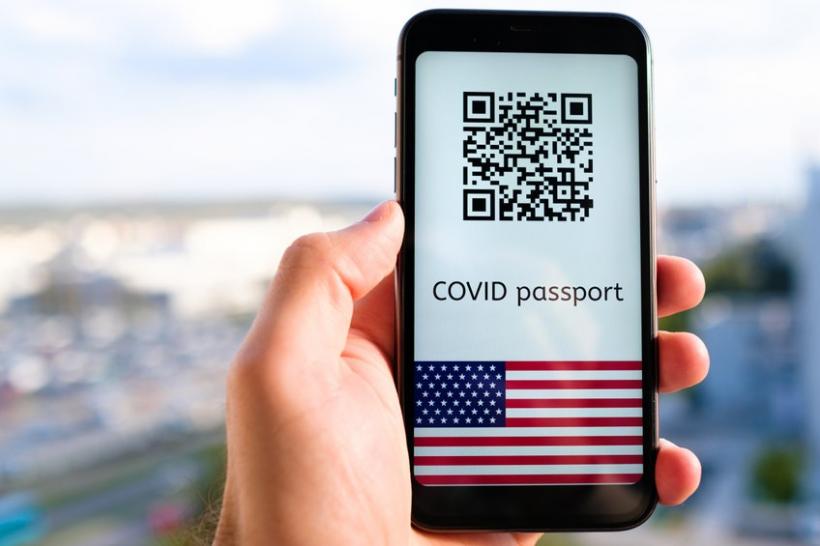
LAST UPDATED: November 3, 2021
Much to the delight of many Canadian snowbirds, on October 15th, 2021 the U.S. announced that beginning on November 8th, 2021, it would open its land borders with Canada and Mexico to fully vaccinated travellers for non-essential travel.
Not long after, the U.S. announced more good news for Canadian snowbirds - confirming that it would accept travellers who had been vaccinated with AstraZeneca and mixed dose vaccines.
The U.S. also announced that as of November 8th, travellers arriving by air would need to be fully vaccinated and the Canadian government announced new vaccination requirements for travel by air, land and sea originating in Canada.
Unfortunately, staying on top of all these rules and finding accurate, timely information in one place can be a challenge.
Accordingly, we have created the following guide to help Canadian snowbirds stay up to date and navigate the requirements to travel to the U.S. and return to Canada.
We will also endeavour to update these rules in a timely manner as more details become available and policies inevitably change as the COVID situation evolves.
Travelling to the U.S.
Land Border Reopening
Beginning on November 8, 2021, the U.S. land border will re-open to non-essential travel from Canada for fully vaccinated travellers.
Vaccination Requirements
Beginning on November 8, 2021:
- Canadians age 18 years and older must be fully vaccinated to travel to the U.S. by air, land or sea.
- Canadians under 18 years of age are exempt from the requirement to be fully vaccinated, but are still subject to pre-arrival COVID testing requirements if travelling by air (see below for more details).
For air travellers, this means flying to the U.S. will become more restrictive beginning on November 8th, as prior to November 8th, Canadians are not required to be vaccinated to fly to the U.S., and only need to provide an approved negative COVID test within 3 days prior to their flight’s departure time.
Definition of “Fully Vaccinated”
According to a statement issued by the U.S. Centers for Disease Control and Prevention (“CDC”), individuals are considered “fully vaccinated” 2 weeks after receipt of the last dose if they have received:
- Any single dose of a U.S. Food and Drug Administration (“FDA”) approved/authorized or approved World Health Organization (“WHO”) EUL approved single-dose series vaccine (i.e. Johnson & Johnson/Janssen), or
- “Any combination” of two doses of an FDA approved/authorized or WHO emergency use listed COVID-19 two-dose series (which would include two doses of AstraZeneca as well as any combination of AstraZeneca, Pfizer or Moderna)
Required Proof of Vaccination
Travellers should use the new standardized proof of vaccination documents available from your province or territory of residence, which are currently available from all provinces and territories except Alberta and New Brunswick.
Alberta and New Brunswick have both stated that the new documents will be available by November 30, 2021, and in the interim, residents of Alberta and New Brunswick are being told to use the current provincial versions of their proof of vaccination documents.
In addition to downloading your vaccine passport to your phone, travellers should print a physical copy of their vaccine passports to take with them in case they experience issues with their mobile device.
You can learn more about proof of vaccination documents for Canadian travellers here, as well as the status, availability and how to access standardized proof of vaccination documents in your province on the Government of Canada website.
COVID Testing Requirements
- Travel by Land or Sea: Canadians travelling to the U.S. by land or sea will NOT be required to take a pre-entry COVID test
- Travel by Air: Canadians travelling to the U.S. by air will continue to be required to present a negative CDC approved pre-entry COVID test taken within 3 days prior to their flight departure time.
Unvaccinated Travellers
Beginning on November 8, 2021, travellers who are not fully vaccinated will no longer be able to travel to the U.S. from Canada by air, land or sea, unless they are under 18 years of age.
Canadian Vaccination Requirements for Travellers
As of October 30, 2021, all travellers age 12 years and up must be fully vaccinated to board a plane, train or marine vessel in Canada, regardless of where you are travelling to.
However, the federal government has implemented a one-month “transition period” until November 30, 2021, for travellers who are in the process of being vaccinated, during which time they will be able to travel if they can show a valid negative COVID-19 molecular test taken within 72 hours of travel as an alternative to proof of vaccination.
Transport Canada has confirmed that during the transition period, travellers will NOT need to show proof that they have begun a vaccination regimen to take advantage of the negative COVID test option.
The new vaccination requirement applies specifically to:
- Air passengers flying on domestic, transborder or international flights departing from airports in Canada
- Rail passengers on VIA Rail and Rocky Mountaineer trains
- Marine passengers on non-essential passenger vessels, such as cruise ships, on voyages of 24 hours or more
What Counts as “Fully Vaccinated”?
The Canadian Government policy requiring travellers to be fully vaccinated defines "fully vaccinated" as receiving a full series of a Health Canada-approved vaccine, with the last dose having been administered at least 14 days prior to the day of travel. A combination of approved shots is also acceptable.
Full details of the new Canadian government policy requiring travellers to be fully vaccinated can be found here
Returning to Canada
Snowbirds returning to Canada are required to comply with the following COVID-related requirements.
COVID Testing Requirements
- Travel by Land: Canadians returning to Canada by land are required to present a negative COVID test taken within 72 hours prior to arriving at the border.
- Travel by Air: Canadians returning to Canada by air are required to present a negative COVID test taken within 72 hours of the scheduled departure time of your flight to Canada.
Accepted Types of COVID Tests
At this time, Canada is only accepting molecular COVID tests and is not accepting rapid antigen tests.
The following molecular tests are considered acceptable:
- PCR - Polymerase chain reaction
- NAT - Nucleic acid test or NAATs - Nucleic acid amplification test
- RT-LAMP - Reverse transcription loop-mediated isothermal amplification
These tests use methods such as a nasopharyngeal (NP) swab, nose swab, or saliva sample.
You can find more information about acceptable COVID tests to enter Canada here.
ArriveCAN Requirements
All returning Canadians and travellers to Canada - whether by land, air or marine vessel - must use ArriveCAN to provide mandatory travel information within 72 hours prior to your arrival in Canada, including your contact information and travel details, proof of vaccination and pre-entry COVID test results and your quarantine plan in case it is determined that you need to quarantine upon arrival.
Once you have submitted your information through ArriveCAN, a receipt will be emailed to you. You may be required to show this to your airline or a Canadian border official.
ArriveCAN is available as an app for iOS and Android as well as online. It is free and is available in English, French and Spanish.
You can find more information about ArriveCAN requirements for returning to Canada here
Other Requirements
- Unvaccinated travellers returning to Canada are required to quarantine for 14 days and submit daily reports, as well as be tested again for COVID on Day 8 of your quarantine.
- Vaccinated travellers returning to Canada are exempt from quarantine and post-entry COVID testing requirements.
















